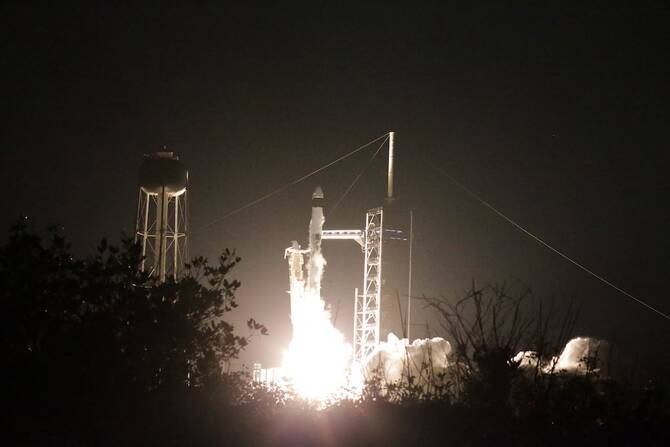
- ARAB NEWS
- 31 Jul 2025

RIYADH: A Saudi mission to study the effects of low gravity on the microbiome of the human eye joined the launch of SpaceX’s Fram2 flight on Monday night.
The study by Falak for Space Science and Research will examine the eye’s bacteria and other microorganisms in conditions of microgravity.
A research team collected biological samples of microbial cultures and conducted tests to ensure that the samples could withstand launch conditions and return safely from space.
The project “will contribute to achieving qualitative progress in education and research in space and associated technologies,” Dr. Ayoub Al-Subehi, CEO of Falak, told the Saudi Press Agency ahead of the launch.
The study of the ocular microbiome in space is an emerging research field. This experiment will analyze the growth rates of the microorganisms in space compared to growth rates on Earth.
It will track the genetic and protein changes that may occur as a result of exposure to microgravity.
The experiment also aims to evaluate the ability of microbes to form biofilms, which may increase the risk of infection in space, as well as analyze changes in microbial resistance to antibiotics after exposure to microgravity.
Dr. Wedad bint Saeed Al-Qahtani, a research scientist in the mission, added: “Studying the impact of the space environment on the natural microflora of the eye could provide valuable data on how it responds to microgravity conditions, which could help develop new strategies and protocols to maintain eye health.”
Another one of the mission’s scientists, Prof. Salwa Al-Hazza, stressed the importance of ophthalmological research, saying: “What we are doing today is not limited to sending a scientific experiment into space, but is a fundamental step towards building a deeper understanding of the impact of the space environment on eye health, and we hope that the results will contribute to the development of future medical solutions that enhance eye health care, both in space and on Earth, proudly carrying this Saudi flag and representing an important step in the Kingdom’s commitment to innovate scientifically and enhance its growing role in the global space sector.”
This mission is part of global efforts to study the impact of space on human health and was preceded by similar research that dealt with the effect of microgravity on the intestinal and oral microbiomes.